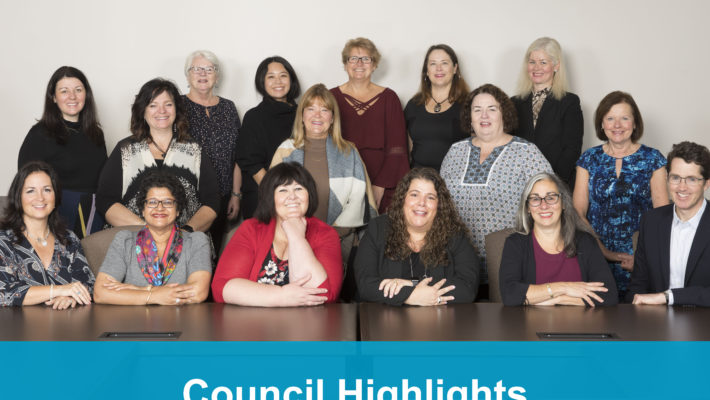Looking back at the College’s past ten years, it all began when early childhood educators (ECEs) achieved their goal of professional recognition with the passage of the Early Childhood Educators Act, 2007 (the Act). The government recognized that ECEs interacted with children at a critical time in their development and were in a position of power and trust. It realized ECEs needed to be held to high standards of professionalism and accountability.
“If ECEs wanted to be seen as professionals, they needed to be recognized as professionals by the government,” Leslie Kopf-Johnson, RECE, Coordinator: Bachelor of Early Learning and Community Development at Algonquin College, and one of many ECEs who lobbied the government.
For ECEs who lobbied the government for professional recognition, they were now known as “Registered Early Childhood Educators” or “RECEs”, but recognition was only part of the picture.
The benefits of professional recognition
The creation of the College in February 2009 was a key outcome of the new legislation and a means for the profession’s self-regulation.
The Act provided RECEs and the public with a definition of what constitutes the practice of early childhood education, and required qualified individuals to be members of the College of Early Childhood Educators to practise the profession.
Specific knowledge and skills
Over the past ten years, a change in attitude towards the profession has evolved with educators, employers and the families with whom ECEs work. RECEs are being more widely recognized as professionals with specific knowledge and skills that are unique to the practice of the profession.
RECEs have a say in their profession
One of the benefits of being recognized as professionals is that members have a say in the governance of their profession. Since that first elected Council in 2009, RECEs can nominate candidates for Council – or run for Council themselves. The College’s Council, made up of fourteen elected RECEs and 10 public appointees, governs the profession. They oversee policy direction, and make decisions related to entry to practice requirements, ethical and professional standards, professional misconduct, incompetence and incapacity.
Celebrating a recognized profession
Today, there are more than 53,000 RECEs in one of the largest self-regulatory bodies in Ontario, and the only self-regulatory body for early childhood educators in Canada.
Something to celebrate!
Check back for more articles as we celebrate the 10th anniversary of the College of Early Childhood Educators and a decade of professional recognition for registered early childhood educators.




